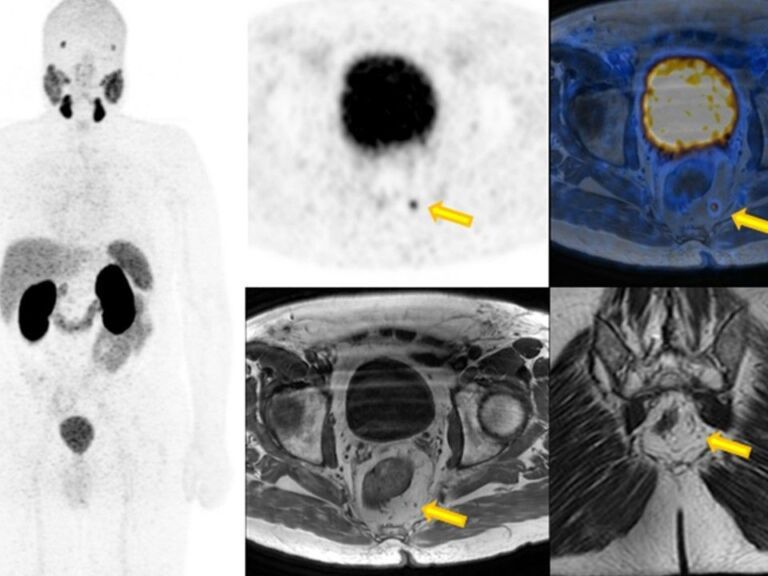Prostate cancer is the most common cancer in men in Switzerland. In some patients, surgical removal is necessary. If the cancer returns after an operation, this can be detected quickly through close follow-up care. Focused radiation is highly effective, well tolerated and has a positive effect on the quality of life of those affected.
In four out of ten patients, the so-called PSA value in the blood rises again after surgical removal of the prostate cancer. PSA stands for prostate-specific antigen, the concentration of which can be easily determined with a blood test. In men who have undergone surgery to remove prostate cancer, this renewed increase in the PSA value is a sure sign that the tumor is growing again. In most cases, the site where the cancer cells grow again is the original site where the cancer formed in the prostate. This area is called the prostate box.
In the past, irradiation of the same site has resulted in a cure in around half of patients in this situation. This is particularly the case if the PSA value is still low, i.e. the cancer growth has not yet progressed and spread following surgical removal of the tumor. This is also the reason why follow-up treatment and aftercare for patients with prostate cancer are carried out so closely and carefully at the CCCZ. However, the radiation was given without actually being able to see the regrown tumor, as it is usually too small and therefore below the resolution of CT and MRI imaging.
A clinical study and accompanying scientific investigations carried out at numerous German and Swiss university hospitals with the participation of the Department of Radiation Oncology (Prof. Dr. med. Matthias Guckenberger) were able to show that the location of tumor growth could be precisely determined using positron emission tomography, or PET for short, which is specificallyadjusted to an antigen in the membrane of prostate cancer cells (PET PSMA). This precise localization of even very small tumors subsequently allows targeted radiation, even if the tumor is located outside the prostate lodge, e.g. in lymph nodes. The result is not only improved efficacy, but also better tolerability of focused radiation.
With regard to quality of life, which was measured in the study, it was also shown that early radiotherapy after cancer cell regrowth has a positive effect: targeted radiotherapy makes it possible to prevent anti-hormonal therapy or at least delay it for some time. This spares the patient the side effects of anti-hormonal therapy.

